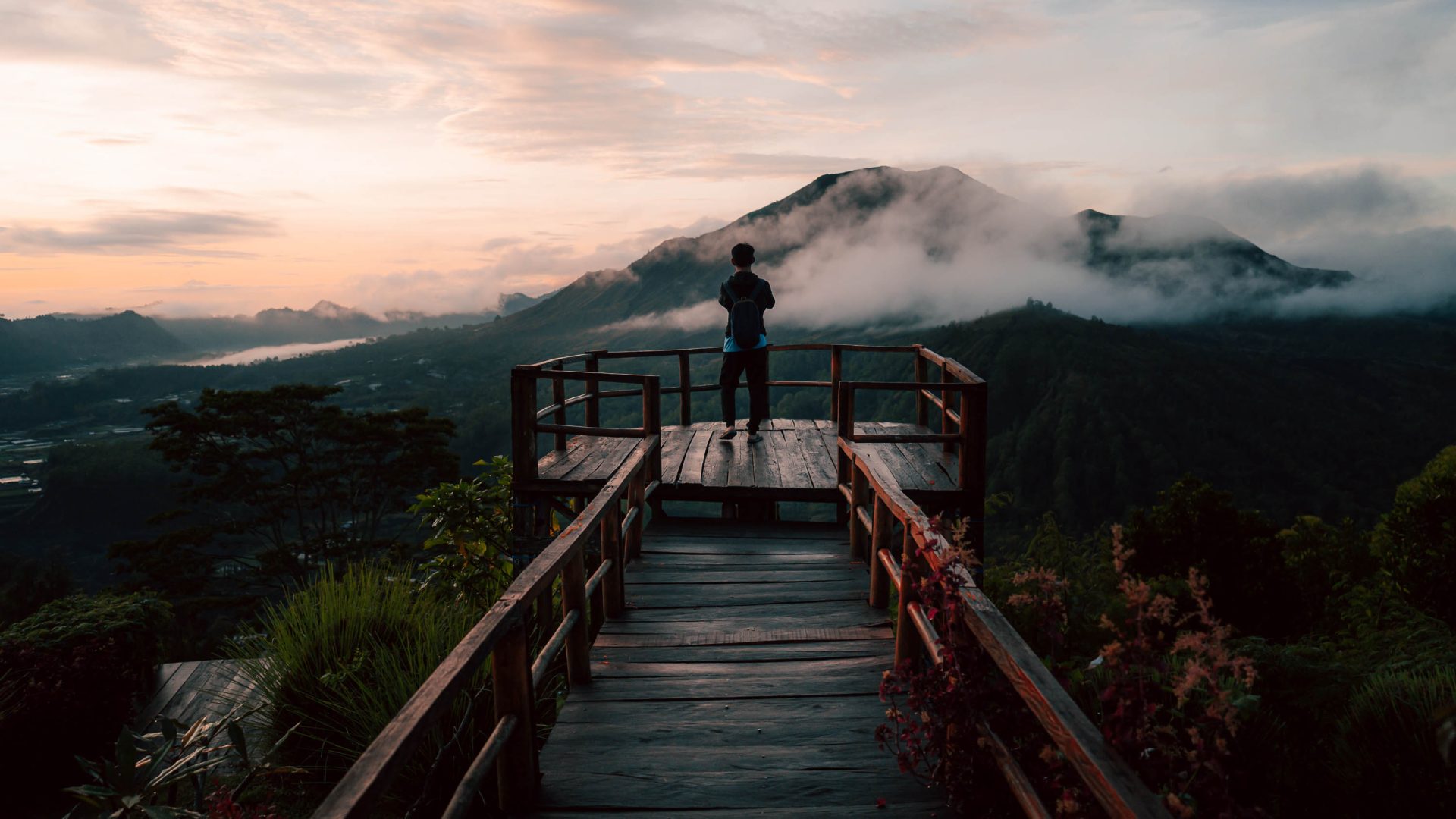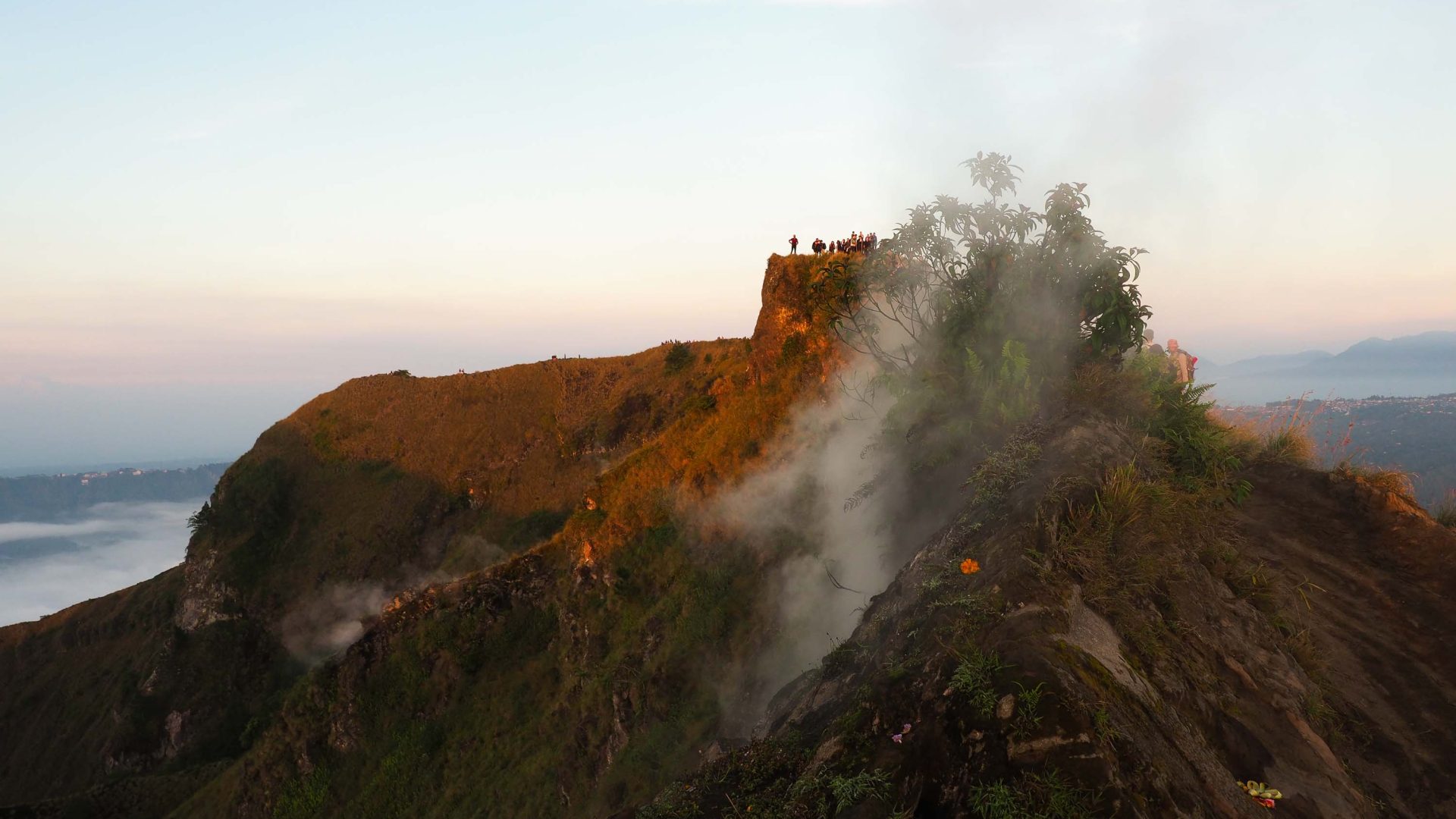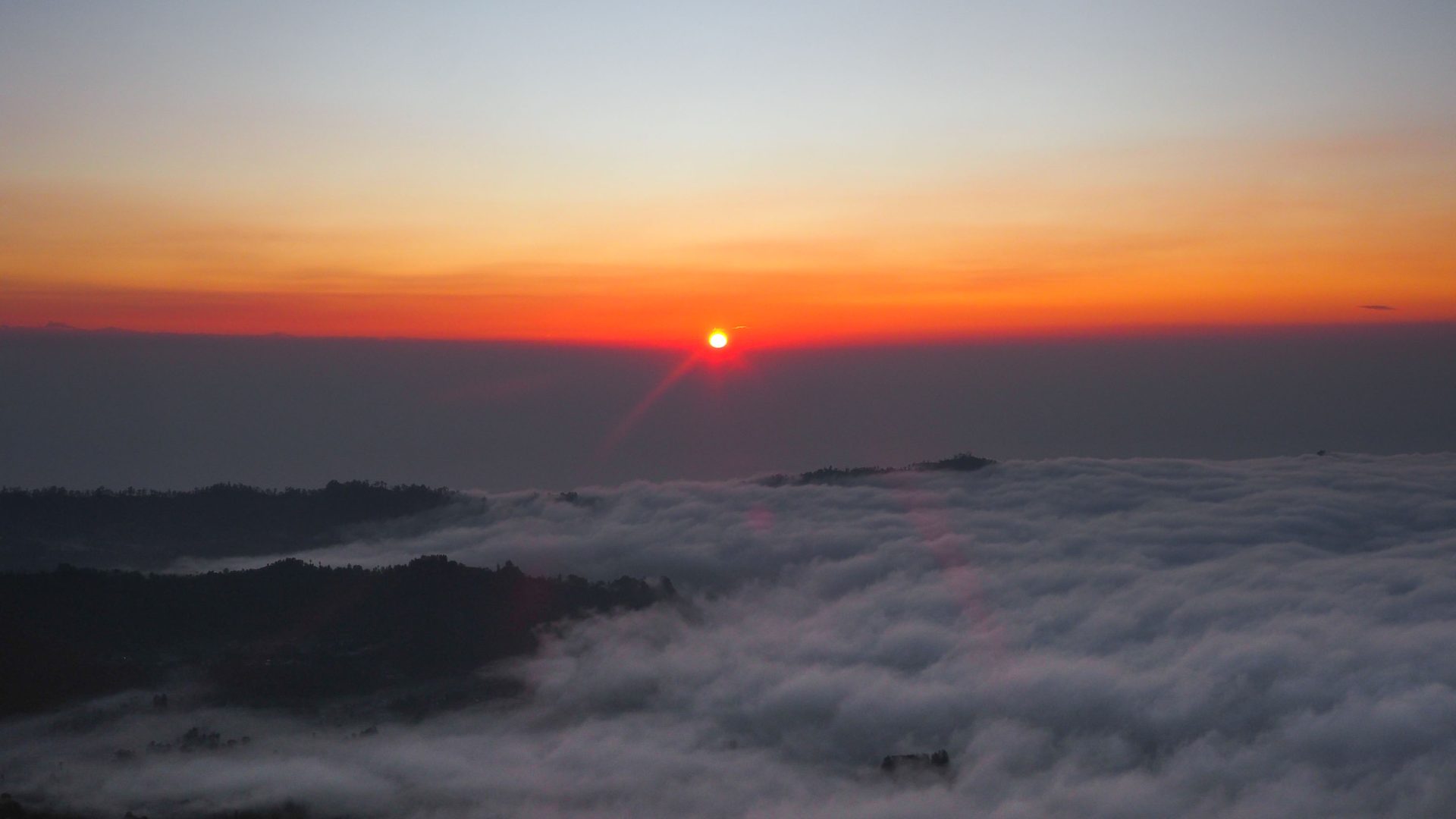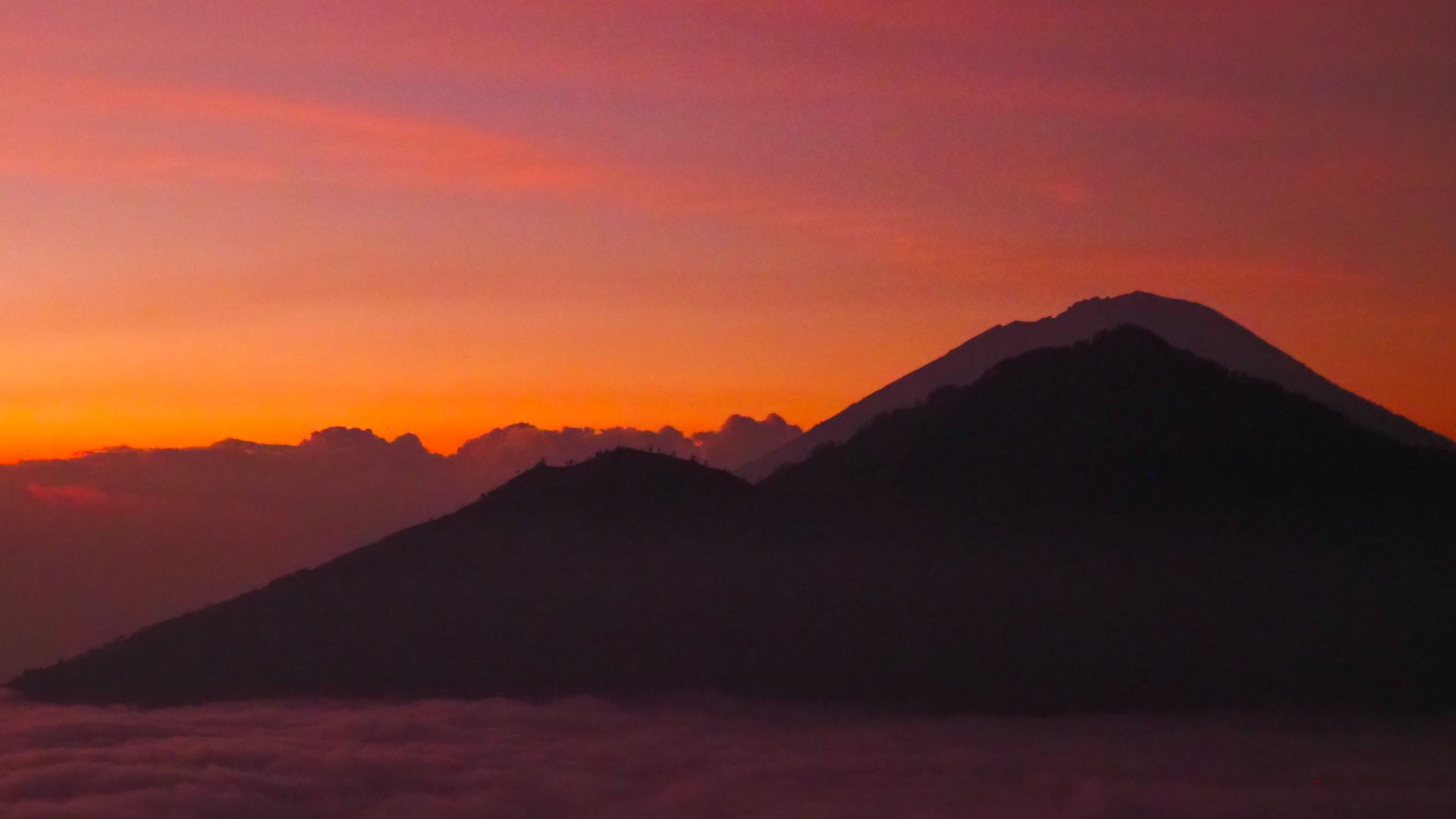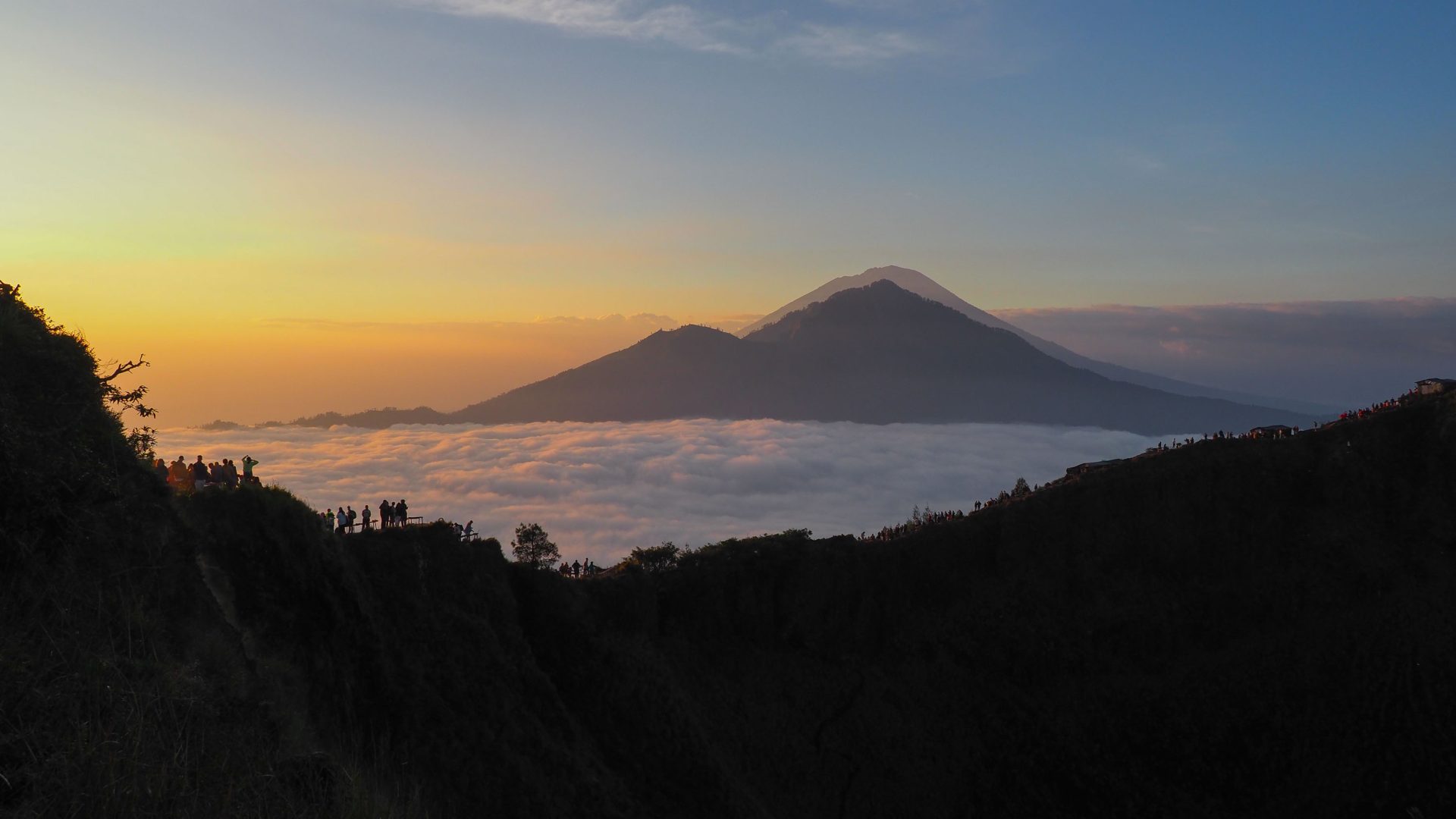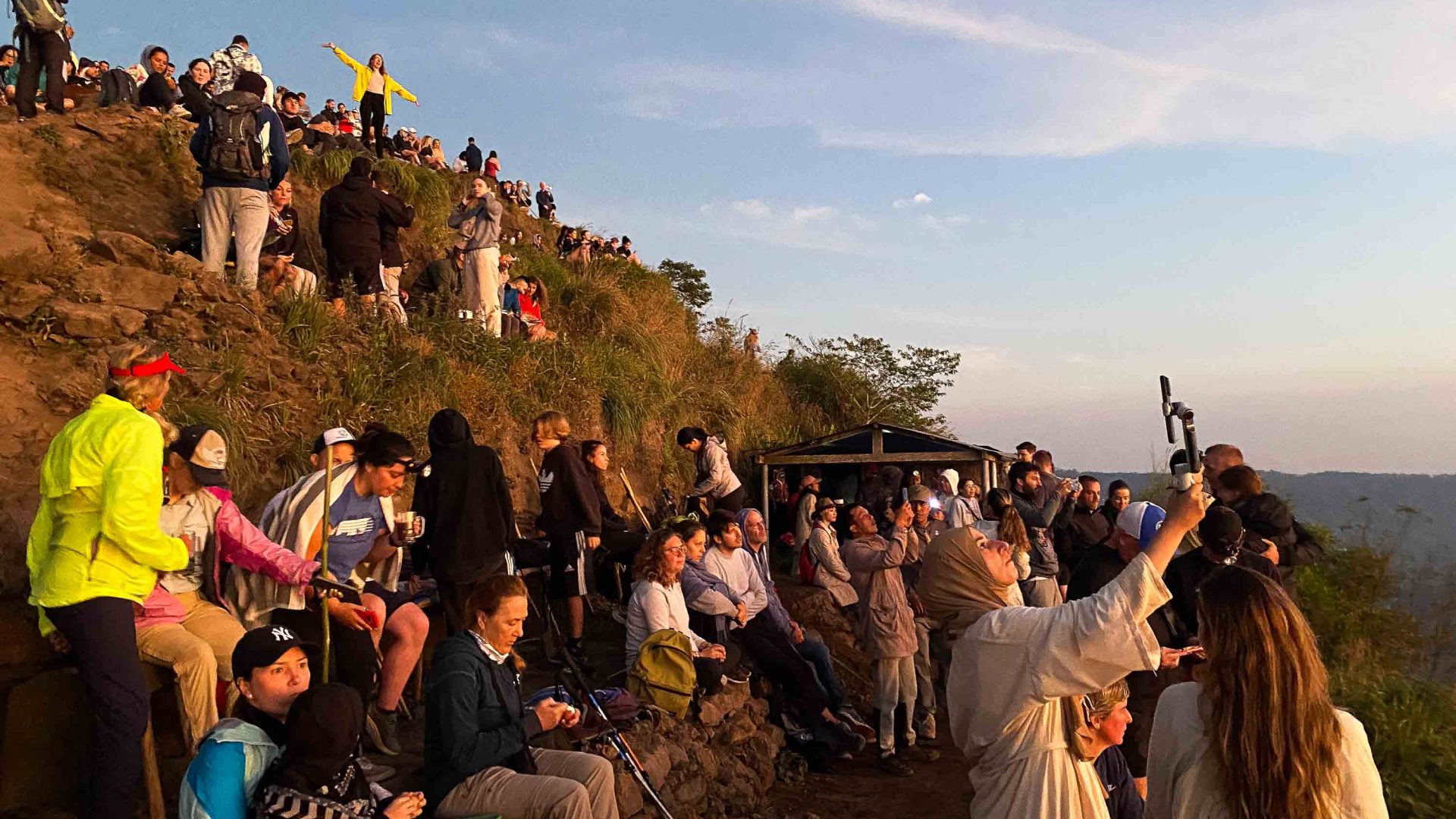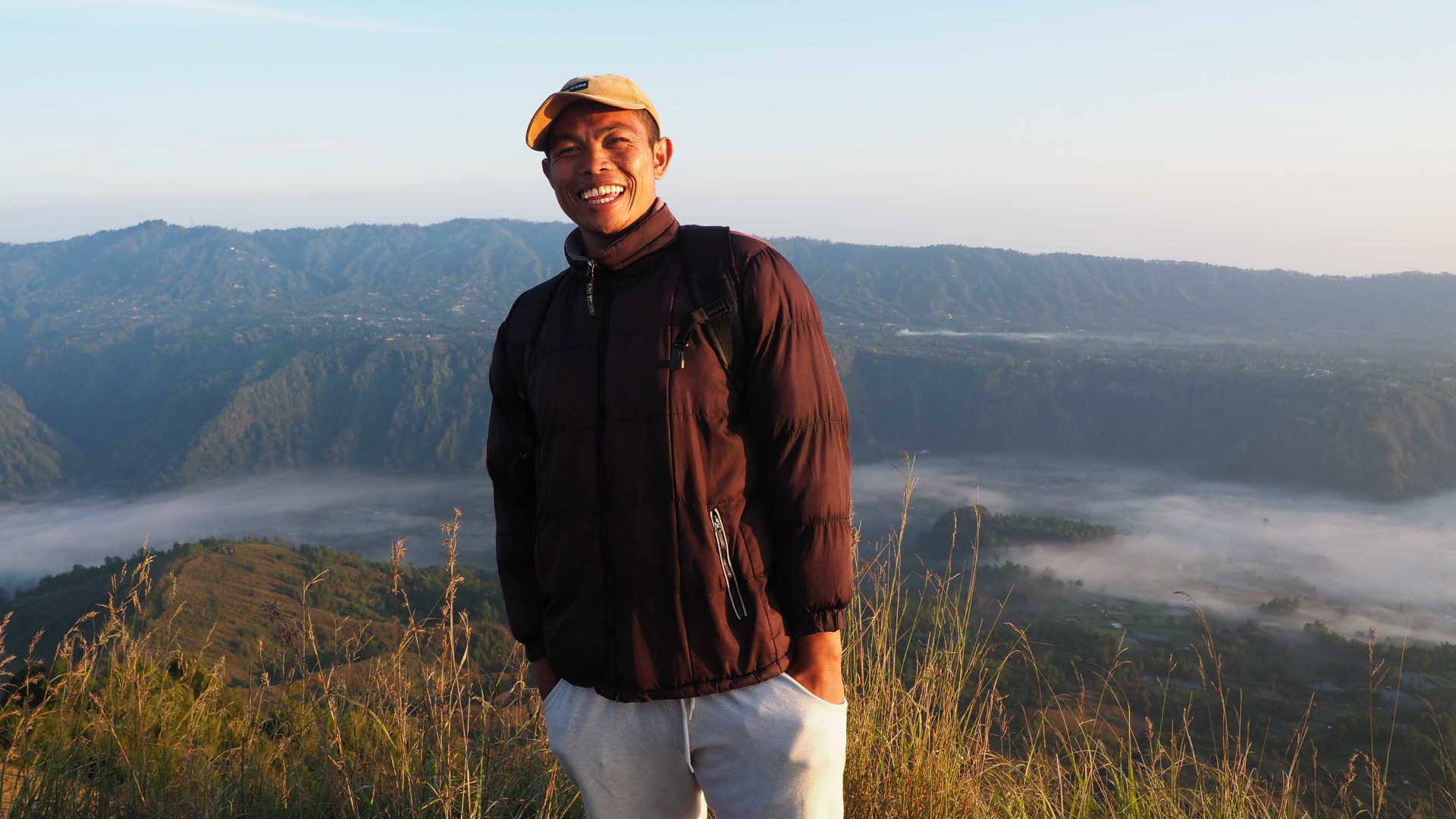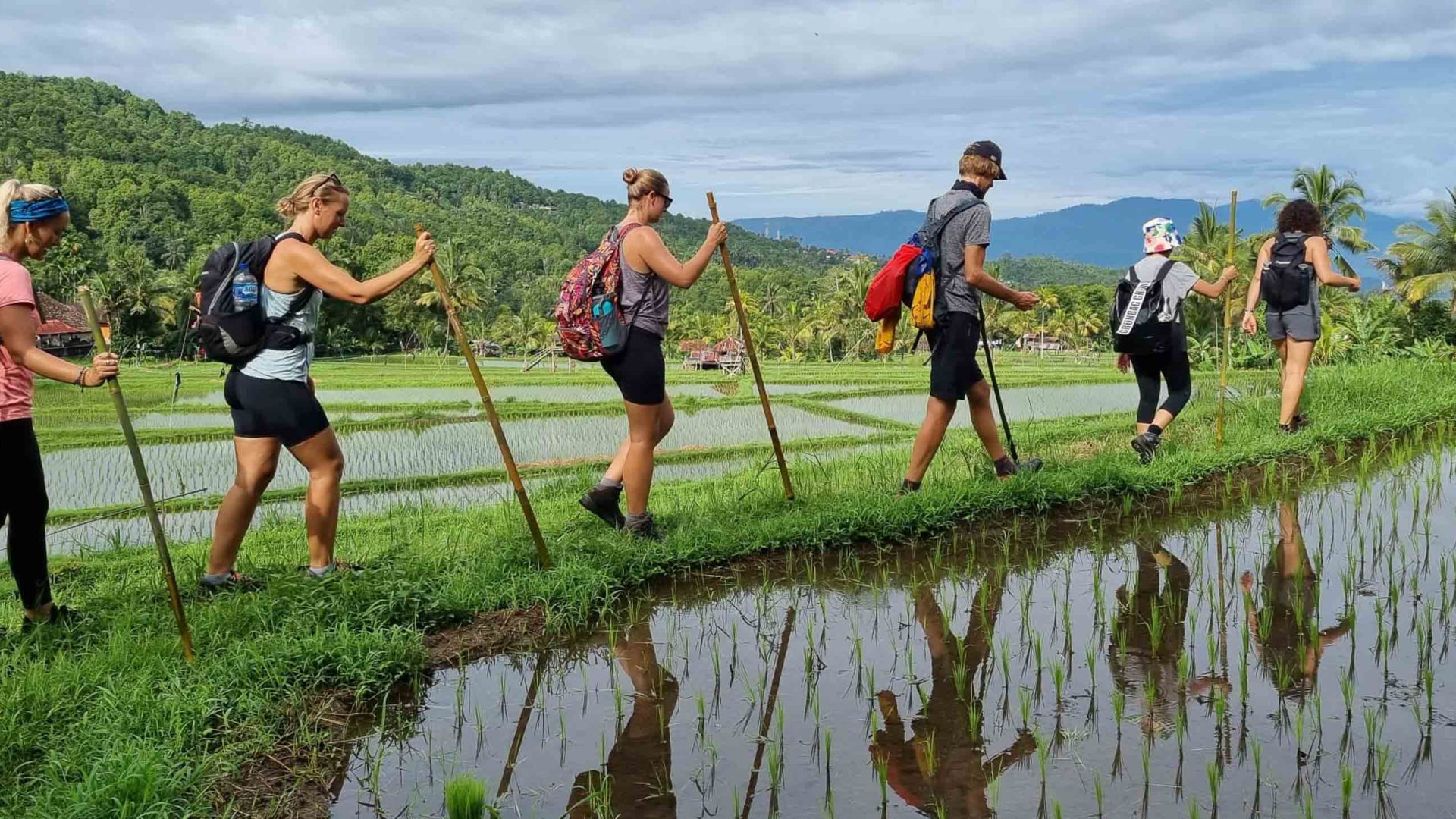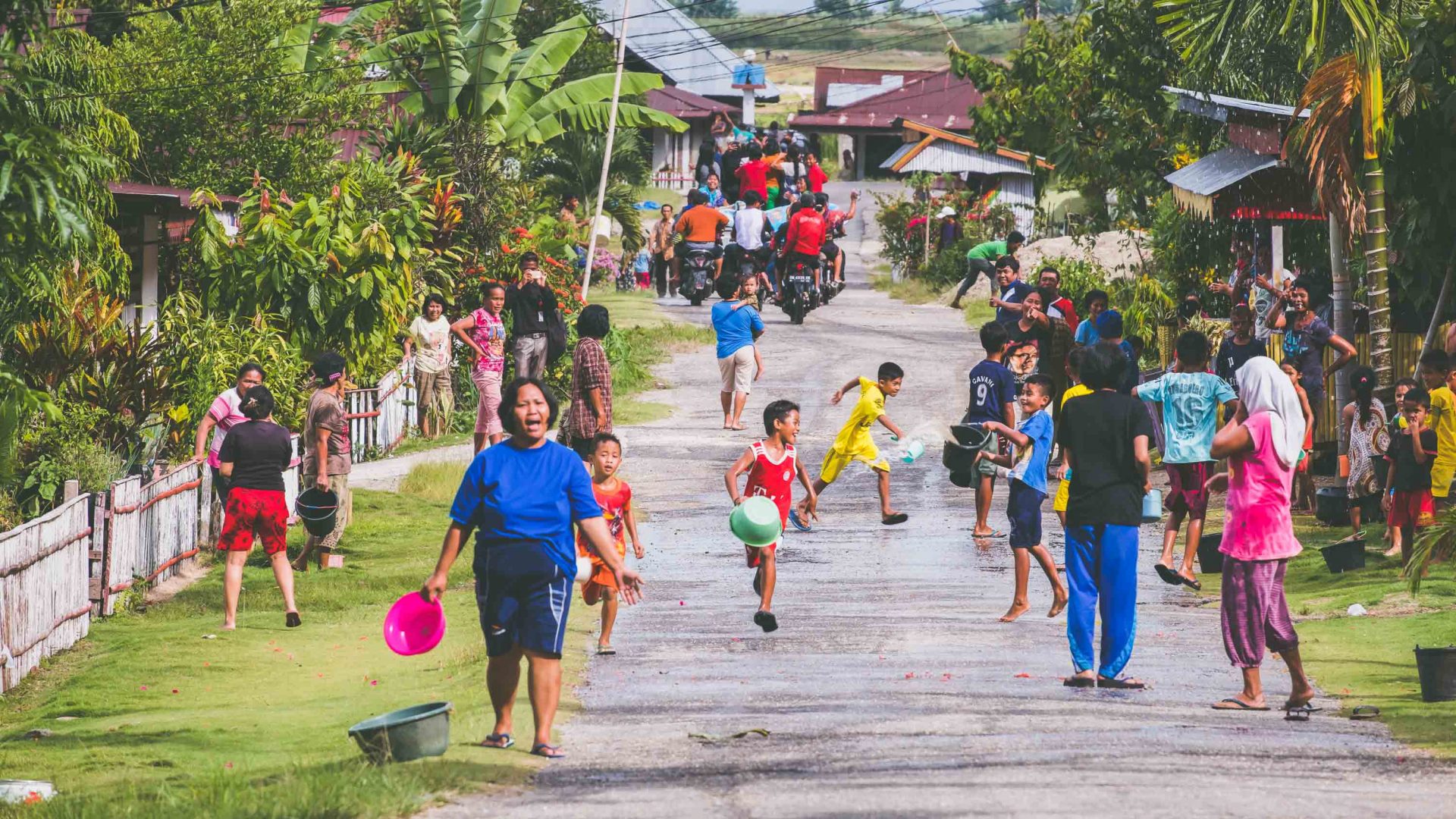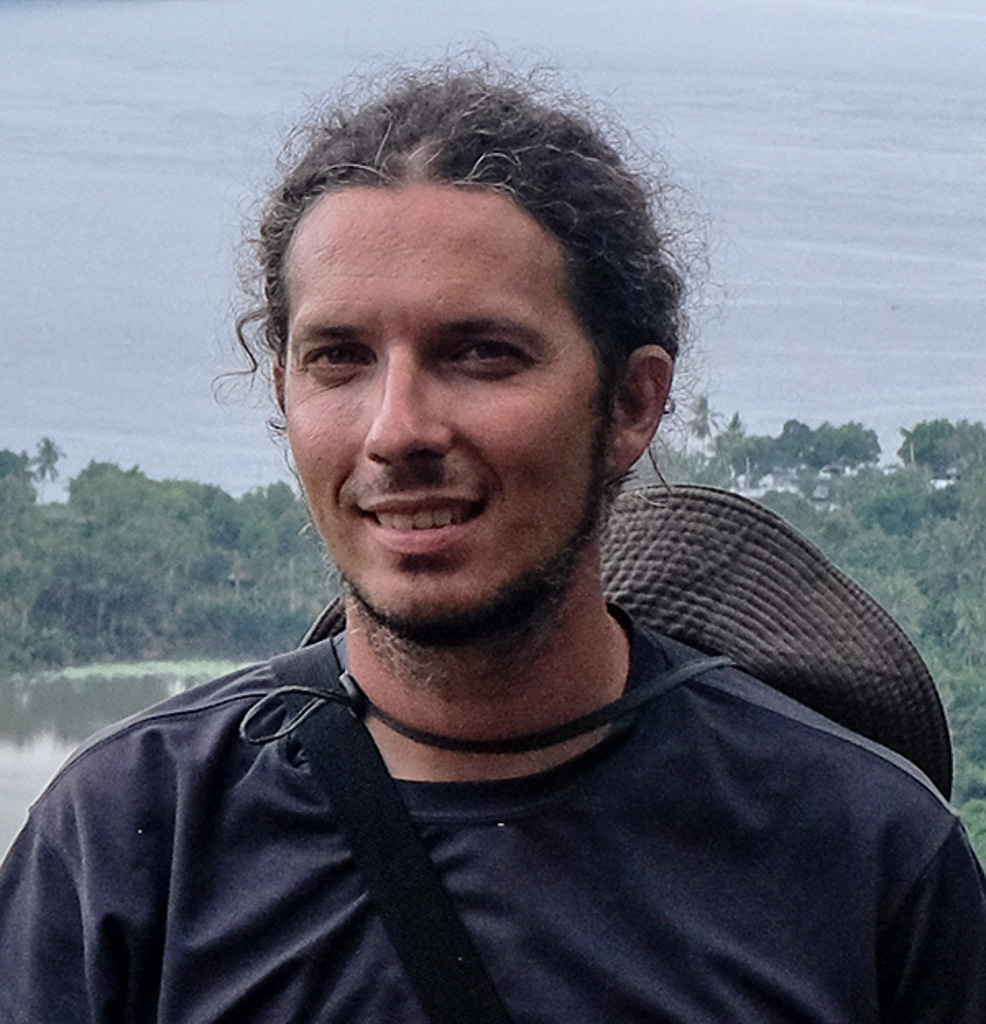Our group makes it to the top nearly an hour before sunrise. Bracing to battle crowds, I’m instead ushered onto one of many bench seats lined up around the crater rim, with room for just about everyone to enjoy a clear, seated view as the scarlet sun yawns above a layer of clouds, as if rising above an ocean in the sky. The first rays of light dance on Mount Batur, illuminating a handful of fumaroles—a reminder that this volcano is very much active (MAGMA, the government’s live warning system, currently has a ‘normal’, or lowest risk, rating for Mount Batur).
In the midst of it all, I’m surprised to discover I’m enjoying this moment with at least 700 other people. While I personally preferred the more solitary slog up Mount Agung, Bali’s tallest peak, many years ago, efforts to disperse the crowds on the summit of Mount Batur have no doubt helped to maintain the raging popularity of its sunrise experiences.
But if the announcement made by Bali’s Governor Wayan Koster on May 31 (which he doubled down on in June) comes into effect, hiking Mount Batur could be banned imminently and permanently for religious reasons, along with tourism activities on 21 other mountains on this Indonesian holiday island.
